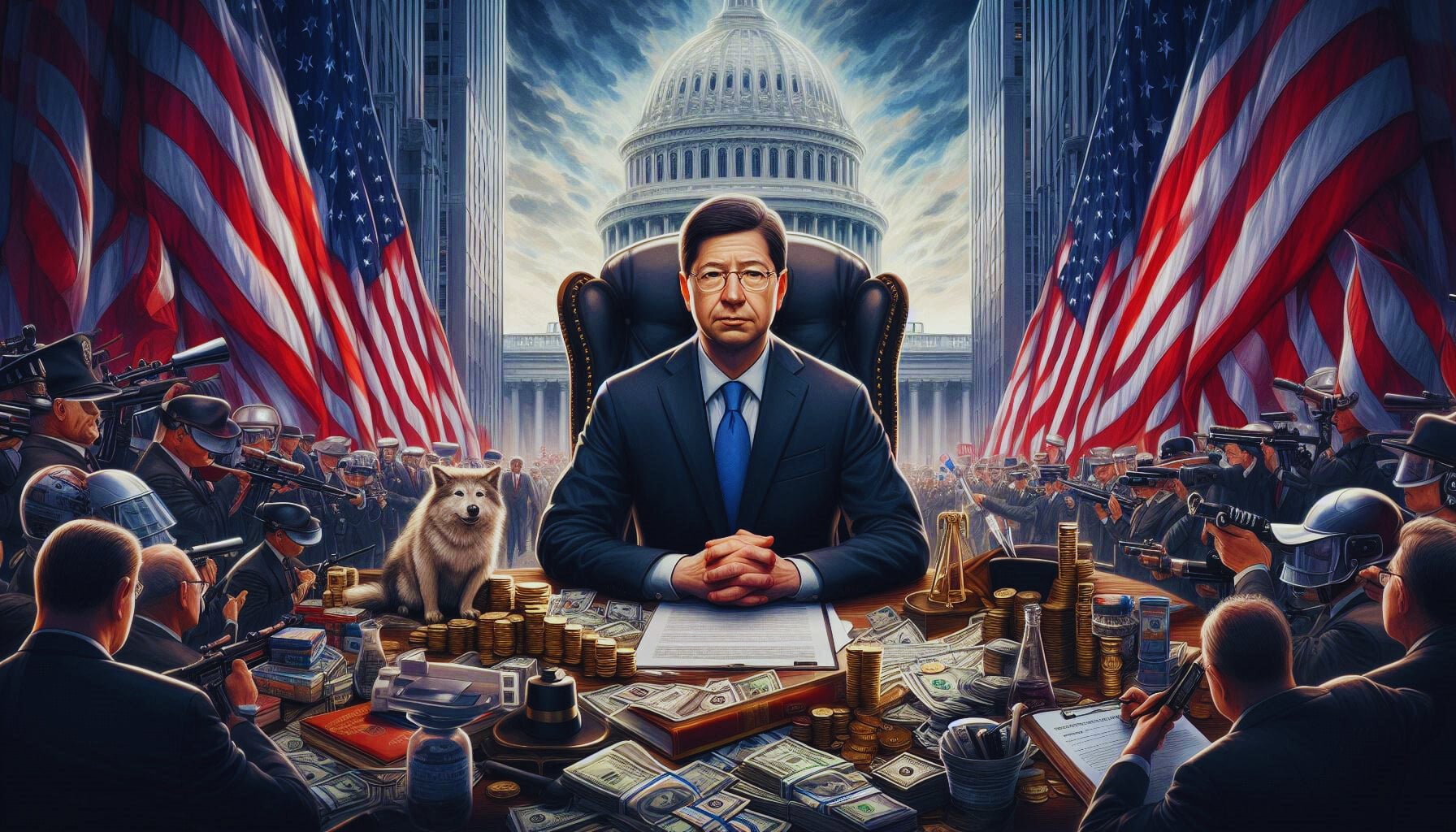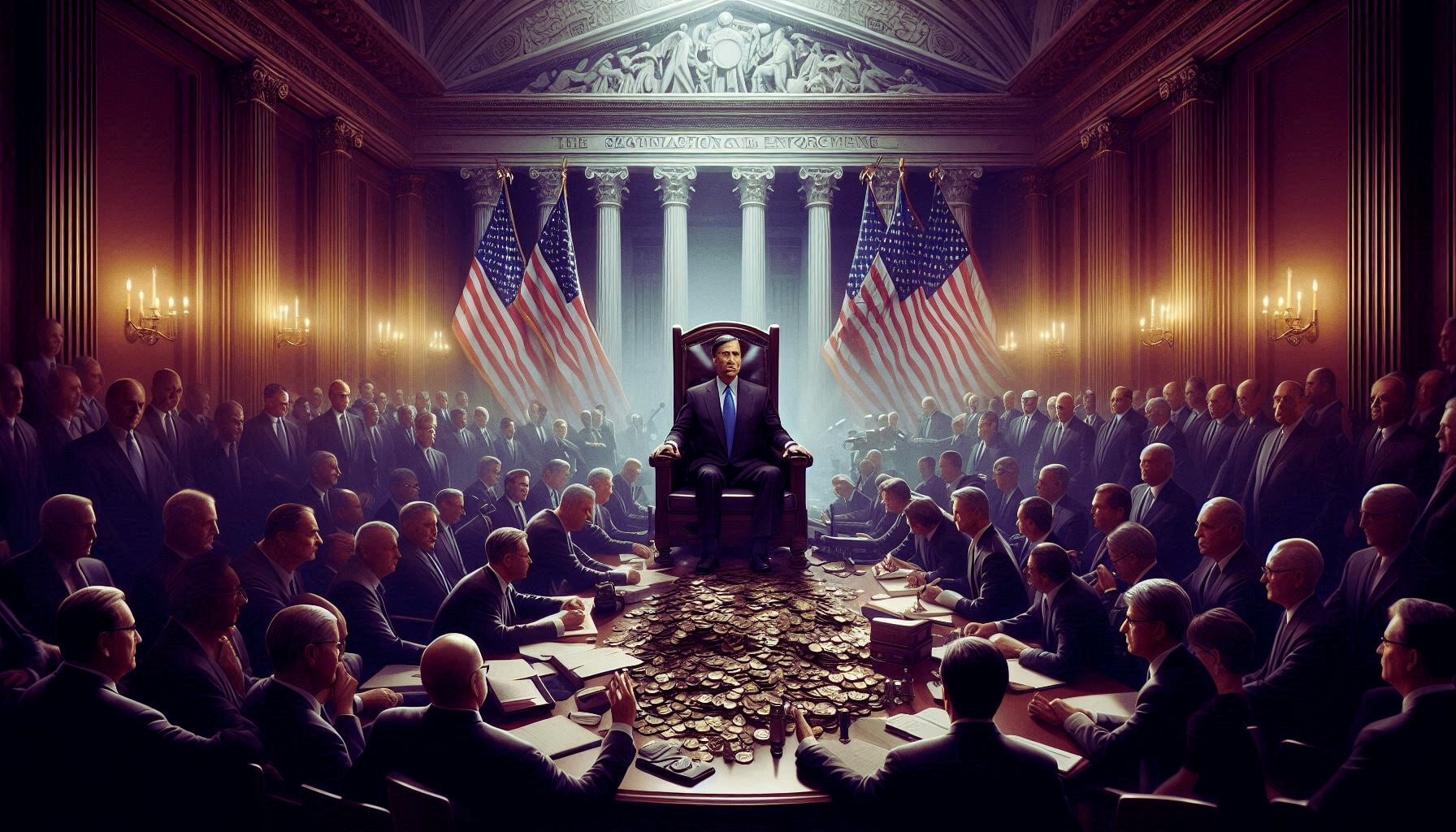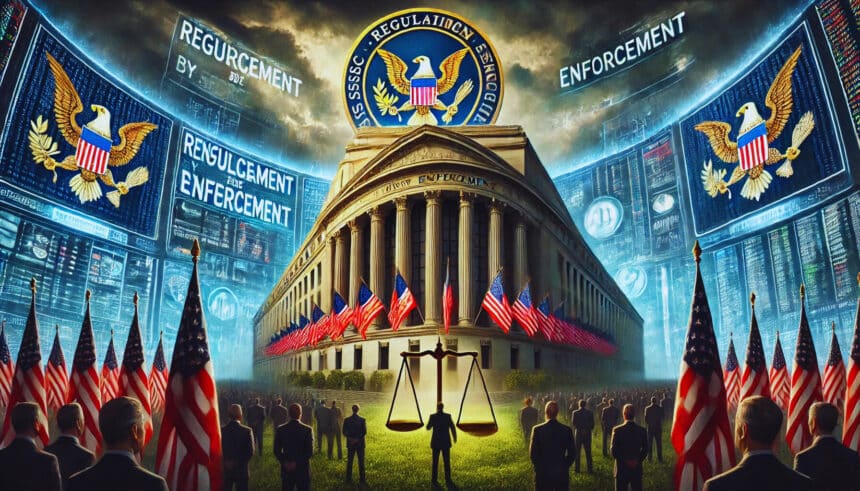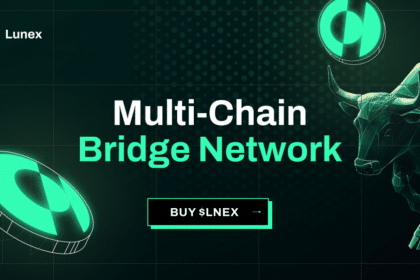In the wake of intensifying political and industry push-back, SEC Chair Gary Gensler has reiterated his stance toward crypto regulation. Gensler spoke Tuesday at a financial technology conference in Las Vegas, where he defended the SEC’s approach to “regulation by enforcement,” amid increasing political heat from cryptocurrency proponents and lawmakers demanding clearer rules of the road. With the U.S. 2024 presidential election looming, Gensler’s posture portends more stringent regulation that would have a profound impact on how much room there is for crypto to operate and investor confidence.

Political and Industry Pushback Against the SEC Approach Grows
Gensler is under bipartisan fire as the US election 2024 looms large. Ex-President Donald Trump said that if he is re-elected, one of his first moves would be sacking him. He criticized the SEC’s proposed stance on crypto regulation as being too hard-lined. Some in the Democratic Party, including some allied with Vice President Kamala Harris, are also reevaluating his leadership given the friction between him and the crypto industry. Pressures show deep differences over the treatment of digital assets, and the pressure to maintain an actionable first position in order to facilitate enforcement by Gensler echoes throughout the industry.

The crypto industry has been a long-time foe of Gensler’s approach, calling “regulation by enforcement” insufficient in terms of clear guidance and detriment to innovation. The industry had argued that without clear rules in place, businesses are required to essentially guess what constitutes compliance and may have unclear guidelines on how to prevent violative activity.
That said, SEC Chair Gary Gensler is standing behind enforcing the current securities laws and points out this could allow him to classify digital assets as within SEC jurisdiction. He has it that firms would likely be wise to comply for investor protection’s sake.
Impact on Cryptocurrency Innovation and Market Stability
This strategy has had industry observers questioning whether such innovation in the cryptocurrency space is sustainable, given how swift and aggressive SEC enforcement can be. Major platforms and token issuers are also under enforcement actions, provoking a series of legal battles for sector companies that impact their operations on one hand while escalating doubts about long-term market stability in investor circles.
Detractors contend that this climate could drive crypto innovation abroad and with it the U.S. tech economy if burdensome regulatory frameworks exist. SEC Chair Gary Gensler, however, has also argued that enforcement is necessary to safeguard investors and claimed securities law already covers many digital assets.
With mounting regulatory scrutiny, crypto businesses may begin to seek refuge from potential overreach in foreign markets which could see maintenance of a grounding influence and innovation within the market rooted elsewhere outside U.S. shores.
What’s Next for Gensler and the SEC’s Crypto Policy?
Although Gensler remains solid in his regulatory outlook, politics could alter that if another president is elected. The president appoints the SEC leadership, and Gensler recognizes this fact: “Presidents decide who chairs the SEC. That’s a good part of democracy.” Nevertheless, he adds that the SEC will continue its work until political changes are made official.
In the crypto sector, a change at the top could hit regulatory policy. A new order may open the door to a more innovation-forward approach if Gensler is replaced, which would certainly satisfy calls for clear regulation on industry cooperation rather than enforcing strict requirements. SEC Chair Gary Gensler has maintained his hardline stance until now, creating a paradigm for how the SEC will conduct itself when dealing with cryptocurrency.

This ongoing tussle highlights the nuance between enforcing regulation and encouraging technological innovation, especially as the United States navigates its place in a fast-growing digital asset sector.
Conclusion
SEC Chairman Gary Gensler is sticking to his guns on enforcement as political and industry pressure mounts, defending his moves as protecting investors and ensuring market stability. The opposition remains fierce to everything he does, and the 2024 election is expected to be one that shapes just how much there will be for a restrictive SEC on future crypto regulation efforts. As the regulatory landscape continues to develop, miles away from its definitive conclusion, with large changes still conceivably coming down on both sides of the table, distress signals are ringing through the crypto industry and investor ecosystem.
The BIT Journal is available 24/7 to provide you with fresh insights into this brewing SEC tug-of-war. Follow us on Twitter and LinkedIn, and join our Telegram channel to be instantly informed about breaking news!




























